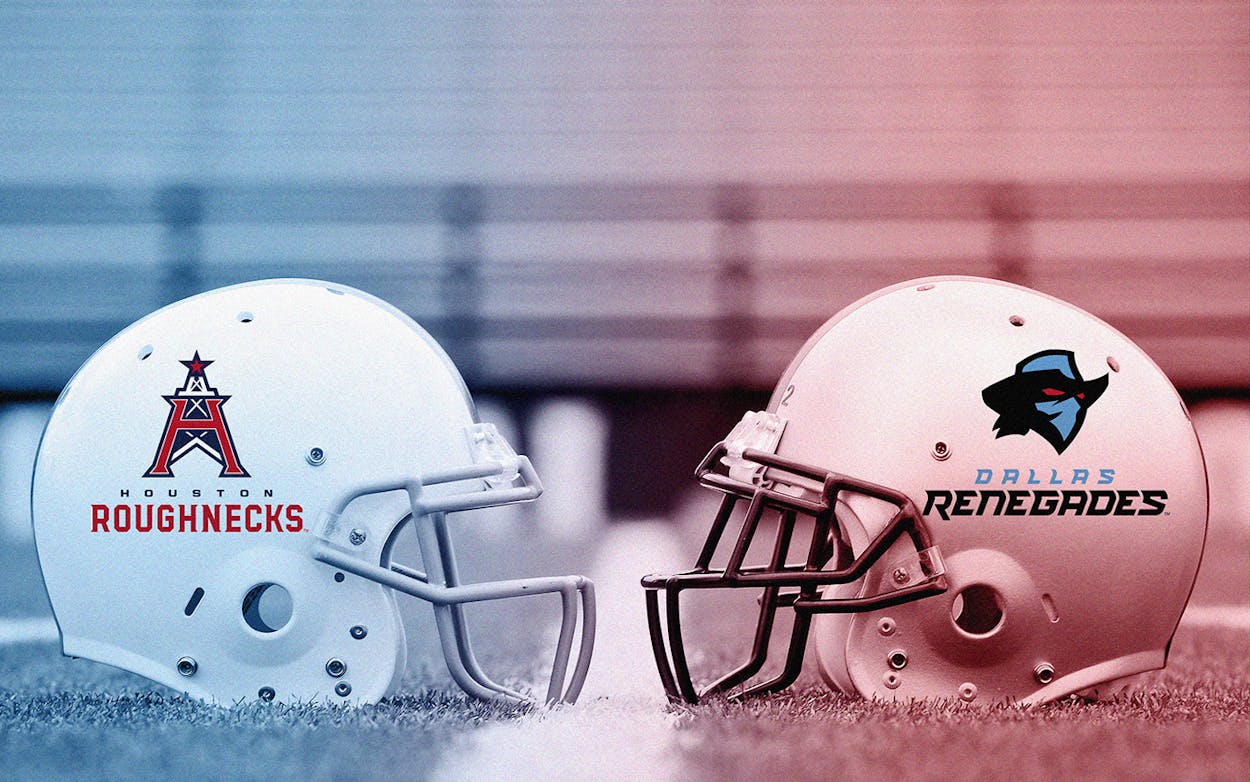The new iteration of the XFL pro football league will launch in February. The idea of giving fans more football at the end of the NFL season has been around for a while—and it’s never really stuck. But the original incarnation of the XFL, which shut down after just one season in 2001, came closer to finding an audience than any other attempt had in decades, and there’s legitimate hype for the league’s 2020 rebirth.
A high-profile sports executive is running the show—former Oilers quarterback Oliver Luck, who went on to leadership roles at the Houston Sports Authority and the NCAA—and the league has the financial backing of WWE’s Vince McMahon. They’ve hired big-name coaches to lead the eight teams—longtime Oklahoma coach Bob Stoops is the boss in Dallas—and look to be recruiting NFL backup-level talent.
To make the league more than just a curiosity, they need viewers to build the sort of deep emotional ties that compel fans to want to wear jerseys of men they’ve never met and to feel terrible for an entire week after a player misses a field goal or drops a pass.
The first step to creating fanbases is with team names and logos, which were unveiled on Wednesday. Both Houston and Dallas managed to emerge with their dignity more or less intact. (The Tampa Bay Vipers and Los Angeles Wildcats, whose logos were presumably designed by contractors hired off Fiverr, and whose names appear to have been randomly selected from a list of animals, weren’t so lucky.) So without further ado, let’s meet the teams.
As far as team identities go, “Renegades” and “Roughnecks” aren’t bad. “Renegades” sounds like “we’re gonna kick your ass,” which isn’t a bad sentiment to convey as a football team. (New York and D.C. got “Guardians” and “Defenders,” respectively, which are both more passive.) “Roughnecks,” of course, is a nod to the oil industry—and the team’s logo is a clear reference to the Houston Oilers, which people in the city still seem to identify with more than they do the Texans.
The Renegades’ logo is more generic. It looks like a bandit with a mask and spooky red eyes, here to ride that horse to the end zone till he can’t no more—but he certainly beats the Seattle Dragons logo, featuring a dragon spitting an itty-bitty flame. You could pretty much call any team the “Renegades,” and nobody would bat an eye, though, which is probably why they made the announcement with this poem attempting to tie the branding to the city of Dallas:
Deep in the heart of Texas…
…beats a different kind of pulse.
A spirit untamed.
A swagger that can’t be denied.
Where big meets bold meets badass.
This is outlaw country, inside the lines.
This is hell on wheels, between hash marks.
This is their home on the range.
The Dallas Renegades. Raising hell.
Calling a football field “outlaw country” feels a little try-hard, but it could be worse. Houston got a better deal though. “Roughnecks” is an objectively good name for a team in the city, both because it allows them to nod to the Oilers without getting sued by the Adams/Strunk family, and because it’s a tough-guy name that wouldn’t make sense in most other cities. Here are the words they used to try to get potential fans fired up:
Resolute.
Rippling with heat.
Railing against fatigue.
Unceasing and often unseen, they labor deep in the trenches.
Mercenaries in the muck.
Brawlers in blackened dirt.
Not just for three hours.
Not just when the lights are bright.
These are the scratching, grinding, never-bending few.
The Houston Roughnecks. Going to work for you.
That language sounds a tad sexual (“rippling with heat,” “scratching, grinding, never-bending”), though perhaps unintentionally so. The Roughnecks have to win over fans despite being coached by June Jones, whose career winning percentage in the NFL is .380, and whose NCAA career at SMU ended with him resigning two games into the 2014 season after being outscored 88-6 in those matchups. The on-field product might be a question mark, but if you’re into “brawlers in blackened dirt,” well, yahtzee!
In any case, the XFL names and logos range in quality from “pretty bad” to “pretty good,” along with one that’s either sublime or stupid (the St. Louis Battlehawks, because naming a team after a regular ol’ bird of prey without a fighting word in front of it just didn’t sound hard enough). Still, subtlety isn’t what anyone should expect from the XFL. At least this time the entire field doesn’t force players to suffer the indignity of saying things like, “I am the punter for the Los Angeles Xtreme” to people they just met, or to write the words “Memphis Maniax” on their tax returns.
Whether anyone’s actually going to watch this league—just as they didn’t watch the AAF, the USFL, the FXFL, the WFL, or the first incarnation of the XFL before it—is still an open question. Now at least we know which teams we may or may not remember exist six months from now.








